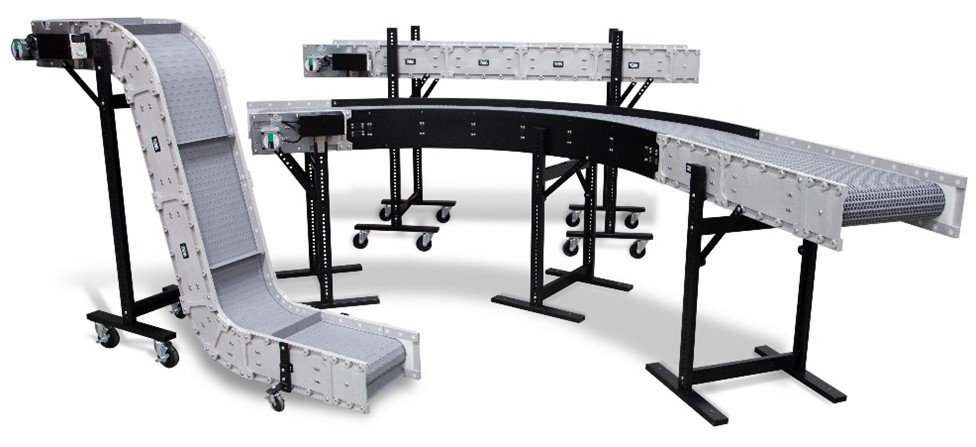
August 23, 2023
Building a Greener Future:
The Rise of Sustainable Conveyors
As the world becomes more environmentally conscious and stakeholders demand responsible business practices, manufacturers are reevaluating their approaches to designing and producing equipment.
Manufacturers are increasingly recognizing that considering the entire lifecycle of equipment, from design to end-of-life, is beneficial for the planet and also makes good business sense in terms of cost savings and market competitiveness.

Sustainable Conveyors
Sustainable conveyors are crucial in promoting environmental responsibility and resource efficiencies in the manufacturing industry. The design, production, and operation of conveyors in a manner that minimizes their environmental impact and maximizes their positive environmental and economic benefits contribute to building a greener future in manufacturing.
Considering the entire life cycle of the conveyors in manufacturing use, maintenance and eventual disposal or recycling is key to meeting sustainability initiatives and contributes to the low cost of ownership.

The following are important considerations for sustainable conveyors:
Material Selection
Sustainable conveyors start with the choice of eco-friendly and durable materials. Choosing materials that are “eco-friendly” with a low environmental impact includes materials that can be recycled, or the use of recycled materials and helps reduce the carbon footprint associated with conveyor production and disposal.
Energy Efficiency
Conveyor systems are designed to minimize power consumption during operation. This can be achieved using energy-efficient motors, variable speed drives, and advanced control systems that optimize energy usage.
Life Cycle Assessment (LCA)
Conducting a life cycle assessment allows manufacturers to evaluate the environmental impact of their conveyors throughout their entire life cycle. This assessment considers factors such as manufacturing processes, efficiency impacts, and end-of-life disposal.
Maintenance
Sustainable conveyors are designed to require minimal & straightforward maintenance. Regularly maintained systems with little effort helps extend the lifespan of the conveyor system, reducing the need for premature replacements, maintenance and upgradability.
Social Responsibility
Sustainable conveyors also consider social aspects, including worker safety. Manufacturers should prioritize the well-being of their employees, provide safe working conditions, and not only adhere to industry safety standards when designing conveyors, but identify ways to exceed these whenever possible.
End-of-Life Management
Sustainable conveyor manufacturing includes planning for the end-of-life of conveyors. This involves designing for easy disassembly and the ability to be recycled. Their longevity contributes to the low total cost of ownership.
By integrating these principles into the design, manufacturing, use, and disposal of capital equipment, businesses can contribute to a more sustainable future while also reaping economic benefits through reduced operational costs, improved reputation, and enhanced resource efficiency.
